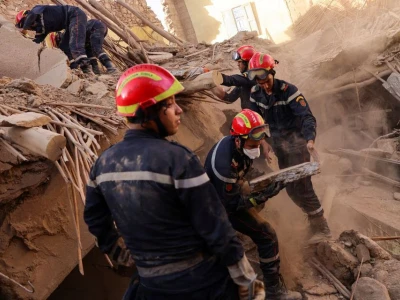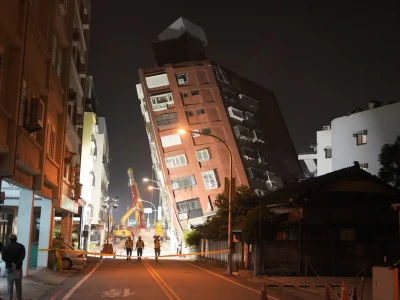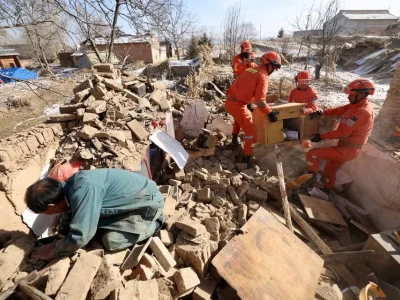
'This is betrayal': Moroccan who lost parents in earthquake angry over government response
Many people in surrounding villages say they are surviving off donations from local charities and have received little or no help from the central state.
TALAT N'YAAQOUB, Morocco, Sept 12 (Reuters) - A man who lost both parents in Morocco's earthquake said he felt betrayed by the government's response after it took four days for digging machinery to reach the remote town where his mother and father were buried under their collapsed four-storey home.
Hoping they might still be alive, Jamal Rbaki desperately searched through the rubble with his bare hands alongside his brother, an uncle and neighbours as military helicopters flew over Talat N'Yaaqoub in the High Atlas Mountains.
"We waited for help," he told Reuters at the scene. "People were dead under the rubble but there was no help."
Rbaki said he was could not understand why it took so long for government relief to reach the town or why some offers of foreign assistance had yet to be accepted when so many in the quake zone were suffering.
"This is betrayal. Sheer betrayal," he said, adding people were still trapped under pancaked buildings in some areas.
The death toll from the 6.8 magnitude quake that hit the High Atlas on Friday evening rose to 2,901 on Tuesday, with the number of injured more than doubling to 5,530, state television reported. Villagers in devastated mountain areas often voiced frustration at having received no help from the state.
Morocco's military is spearheading the rescue efforts and army personnel and emergency workers have been present in Talat N'Yaaqoub for days.
The army has said it was reinforcing search-and-rescue teams, providing drinking water and distributing food, tents and blankets, while the government has said every effort was being made on the ground.
But the earthquake-stricken area is sprawling, rugged and isolated. Some roads have been blocked by landslides, leaving some of the most hard-hit areas reachable only by helicopter.
Residents in nearby villages shared stories similar to Rbaki. They searched for loved ones on their own and have pulled out survivors and buried their dead without any government aid.
Many people in surrounding villages say they are surviving off donations from local charities and have received little or no help from the central state authorities.
"The ones who should've helped the people don't care," Rbaki said.
Most people in Talat N'Yaaqoub felt as if the authorities were rejecting them, he said. "This puts a knife into your heart right away. We love Morocco. This is our country. This is our soil."
When the earthquake struck, Rbaki was in Marrakech, the historic city 72 km (45 miles) away from the epicentre of the tremor. It took him 12 hours to travel around 100 km from there to Talat N’Yaaqoub.
He said desperate, repeated efforts to contact his parents by phone went unanswered as he waited for the blocked Tizi n’Test road that links his home town with Marrakech to be cleared of debris.




